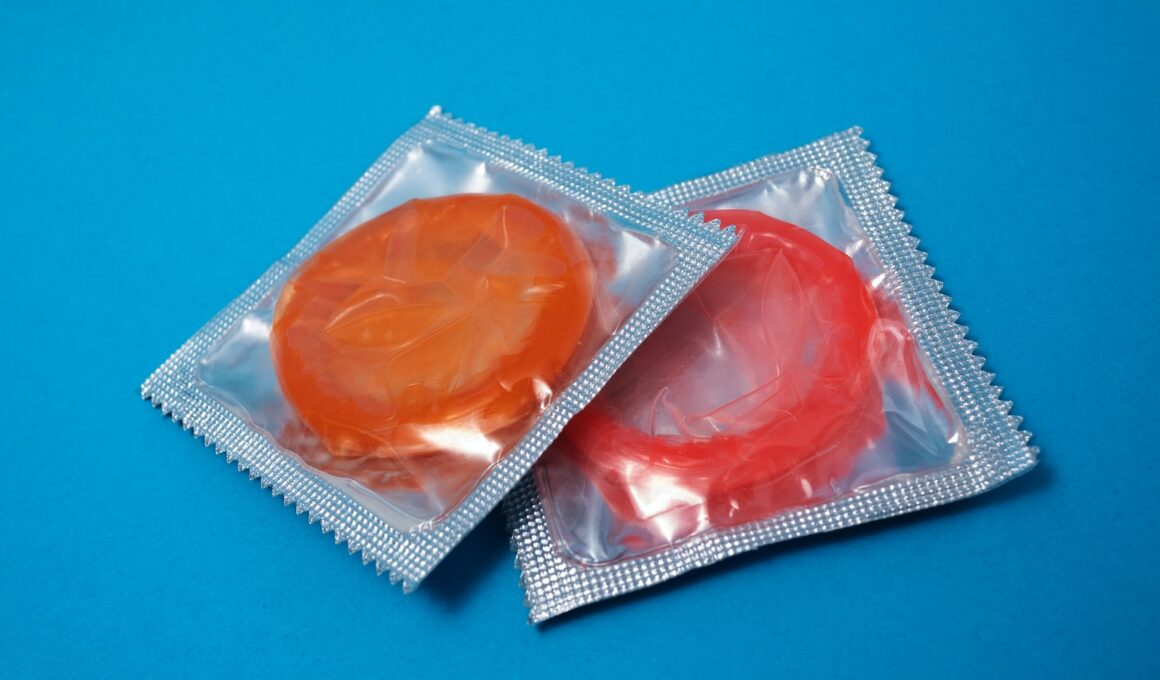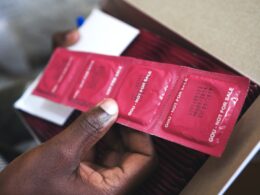Nonoxynol-9 spermicide can cause condoms to break down faster than they would without it. It also irritates the genital skin and opens pathways for viruses such as HIV and other STD/Is to enter.
Spermicide foam, cream, jelly and suppositories make sperm stop moving by killing them. But they are not reliable enough to use as the sole method of pregnancy prevention, and don’t protect against sexually transmitted infections.
What condoms do not have nonoxynol 9?
Nonoxynol 9 is a chemical that acts as a spermicidal agent. It works by attacking the acrosomal membranes of sperm, which causes them to become immobilized. This chemical is found in many spermicidal creams, gels, jellies, and foams as well as condoms. In addition, almost all diaphragms and cervical caps are lubricated with nonoxynol 9, as are some contraceptive sponges. It is also found in some ringworm shampoos and vaginal suppositories. However, nonoxynol-9-based spermicides are only up to 85 percent effective at preventing pregnancy and STDs and should always be used in conjunction with a condom as a backup method of birth control. In fact, frequent use of spermicide-based products has been linked to an increased risk of genital abrasions and subsequent STI transmission – These words come from the service https://tresexy.com. A spermicide-free condom lubricated with lactic acid may work as an alternative.
Condoms with spermicide
Many condoms come with spermicide, which makes them easier to use and reduces the chances of the condom splitting during anal sex. However, some people like to add additional lubricant to the condoms when using them for anal sex. It’s recommended to avoid oil-based lubricants with polyurethane condoms (such as lotion or body oil) since they can damage the lubrication on the condom and increase the risk of a break. Instead, use a lubricant that is designed specifically for sexual health, such as a silicone-based lubricant.
While spermicide can be effective at preventing pregnancy and STD/Is, it doesn’t provide higher protection than a standard condom with nonoxynol 9. Additionally, spermicidal lubricant can cause a reaction in some users, ranging from mild to severe. The irritation caused by spermicide can increase the risk of infection from STIs and/or bacterial infections, especially when used multiple times per day or in high doses.
Spermicide can be purchased over-the-counter at most grocery stores, drugstores and supercenters. It’s inexpensive and doesn’t require a prescription. Spermicide is best inserted less than 30 minutes before sexual intercourse and before each act of sexual intercourse. It can be used in combination with other barrier methods, including condoms and diaphragms, to avoid high failure rates. Spermicides can be messy, so it’s important to use them correctly and to wipe thoroughly after each application.
Condoms without spermicide
There are a number of condoms that do not contain spermicidal compounds, or Nonoxynol 9. These are usually more expensive than regular condoms, but offer an extra layer of protection against pregnancy and sexually transmitted diseases. These are called spermicide-free condoms, and are more comfortable to use because they do not have the rubbery, chemical-y feel that spermicidal condoms can have.
If you choose to buy spermicide-free condoms, make sure to check the label. Some spermicide-free condoms may contain natural rubber latex, and you should avoid these if you are allergic to latex. Also, be aware that using spermicide-free condoms with a lubricant that contains Nonoxynol 9 can compromise their effectiveness, so you should stick to a separate, spermicide-free lubricant.
A popular option is Durex Real Feel, which has no spermicide and is slightly lubricated. It also has a longer shelf life than other condoms, and is free from that clinical, chemical-y smell that some people dislike. You can also find spermicide-free condoms from maude, a company that specializes in organic, body-safe intimacy essentials. These come in a variety of sizes, are easy to open with “buttercup” packaging, and are FDA-approved and electronically triple-tested for safety. They are also available in vegan and organic varieties, so there is something to suit everyone’s tastes.
Condoms with silicone lubrication
Many brands make condoms that are lubricated with a medical-grade silicone. These include the LOLA brand, which is a subscription-based service that provides you with 10, 20 or 30-count packs of lubricated condoms at regular intervals. These are a great option for people who don’t want to have to buy lubricant at the store or for those who are sensitive to the ingredients found in personal lubricants. They can be used for vaginal sex, oral sex or as an external lubricant. Avoid using oil-based lubricants with these condoms, as this can degrade latex and increase the risk of condom tears or rupture during sex.
Other types of nonlatex lubricated condoms include the polyisoprene Skyn Elite condoms, which are gently lubricated and are suitable for anal, vaginal or oral sex. These are a good choice for those who have mild latex allergies or sensitivities.
Another option for a safe and pleasurable sex experience is the FC2 internal condom, which can be used with either water or silicone-based lubricants. The FDA-approved internal condom is also latex-free, hormone-free and has no spermicide. FC2 is a great option for couples who enjoy masturbation, foreplay or intercourse, and can help prevent both herpes and pregnancy. However, it’s important to communicate with your partner about the use of condoms before getting intimate. This can help prevent confusion and increase the chance of a positive experience.









